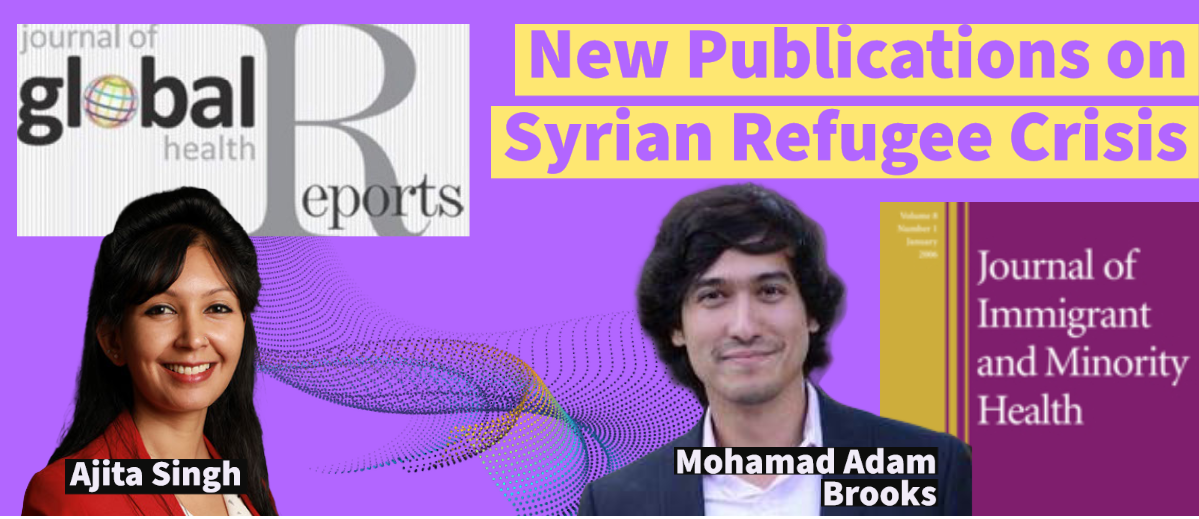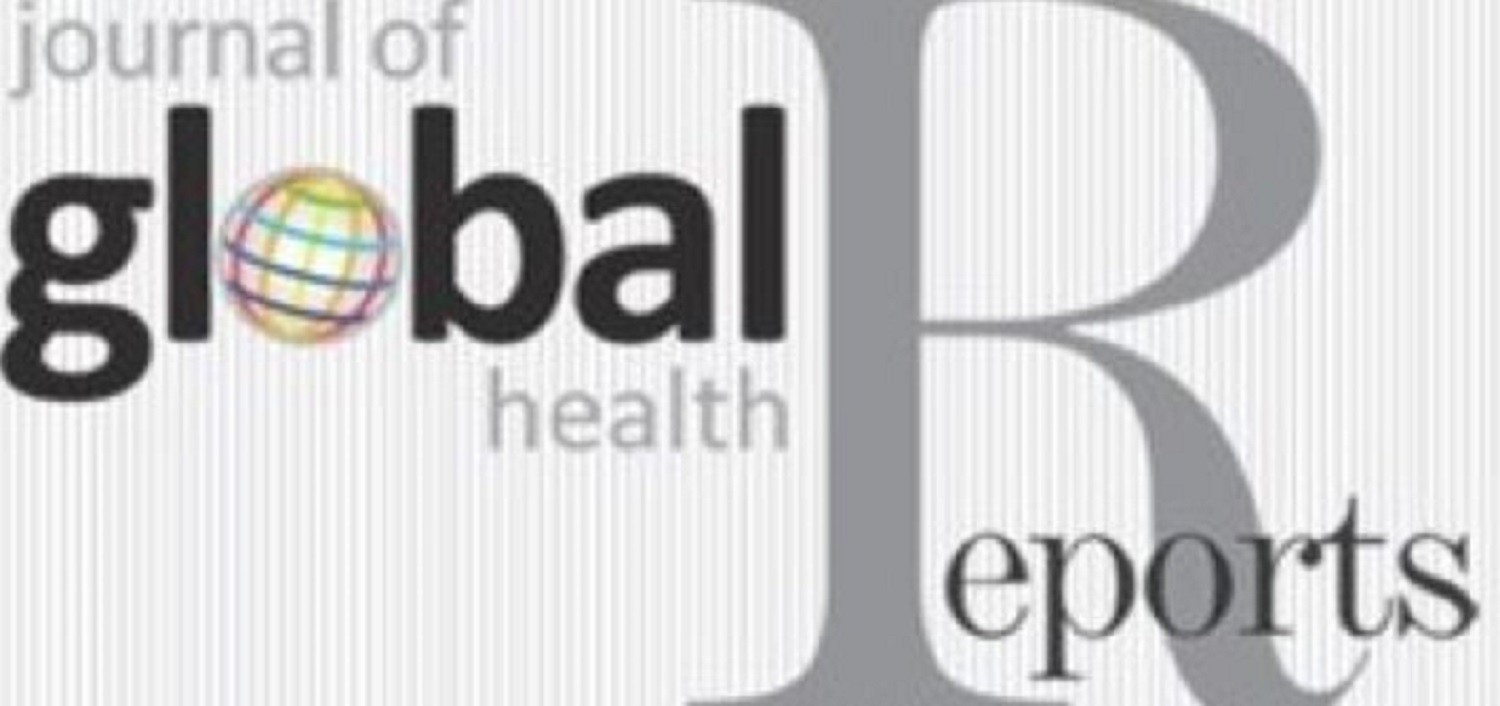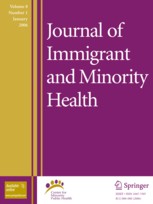Two new publications examine the role of financial dependence on intimate partner violence among Syrian women refugees and secondary traumatic stress among service providers in the Syrian refugee crisis.

As another refugee crisis unfolds in Ukraine, some may seek lessons from earlier refugee crises in order to best provide humanitarian aid. The Syrian refugee crisis, resulting from the Syrian civil war that began over a decade ago, provides such lessons. The crisis impacted hundreds of thousands of families, affecting women and children particularly hard.
ASPIRE -- Advancing Solutions in Policy, Implementation, Research and Engagement for Refugees -- was launched to address this crisis through research. Recently, two SIG ASPIRE researchers published the results of their studies from two ASPIRE programs.
One publication, Financial dependence and intimate partner violence (IPV) among married Syrian refugee women living in non-camp settings in Jordan, was the result of data collected through Women ASPIRE. The other, Secondary Traumatic Stress, Depression, and Anxiety Symptoms Among Service Providers Working with Syrian Refugees in Istanbul, Turkey, resulted from data collected through Providers ASPIRE.
The Journal of Global Health Reports
Read the publication: Financial dependence and intimate partner violence (IPV) among married Syrian refugee women living in non-camp settings in Jordan
When disaster strikes -- whether wars or pandemics -- gender norms, roles, and social norms often change. Women absorb additional household responsibilities and new roles as breadwinners. This shift in power can also increase violence against women.
Due to the war, Syrian refugee women have experienced both economic hardships and intimate partner violence. The relationship between financial dependence on husbands and intimate partner violence among Syrian refugee women in host countries is an important area of research, especially in situations where traditional gender norms, as noted, are shifting rapidly.
First author Ajita Singh advocates for research, policy, and practice to address these underlying changing gender roles: "Intimate partner violence prevention efforts and social norms that perpetuate violence in changing household dynamics among Syrian refugee married couples could be considered while developing potential economic empowerment intervention programs."
Economic stability in a relationship could be a protective factor and destabilization of gender roles a risk factor for intimate partner violence between married couples in a refugee context.
Reflections on approaches to assisting refugee populations
First author Ajita Singh and fellow publication authors Nabila El-Bassel, Neeraj Kaushal, Melissa Meinhart, Jennifer Komos Hartmann, Trena Mukherjee, Maysa’ Khadra, Ruba Jaber, Raeda Al-Qutob, and Anindita Dasgupta shared several takeaways for humanitarians, policymakers, and others assisting women who are refugees.
The economics of violence and economic stability in humanitarian settings is an important area of research, and the findings suggest the importance of health services and economic empowerment opportunities in host countries where refugees resettle.
Specifically:
- Due to rapidly changing household dynamics, the likelihood of intimate partner violence depends on the context of increasing or decreasing economic dependence on husbands. Providing economic and psychosocial support (and interventions) to resettled and resettling families in host countries should be at the core of humanitarian and development efforts.
- Though this research studies Syrian refugee women’s physical and sexual violence experiences perpetrated by husbands, capturing emotional and psychological violence perpetrated by military/police officials in the future research is vital in preventing all forms of violence in humanitarian settings.
- It is equally important to capture other forms of abuses, such as economic and financial abuses, while including harmful gender and social norms in the future research to identify and respond to refugee women’s health and protection needs.
CSSW Responds to the Afghan Refugee Crisis
Institutions central to this research/work include:
- The Social Intervention Group and the Columbia University School of Social Work, New York, USA
- Columbia University, Mailman School of Public Health, New York, USA
- Department of Obstetrics and Gynecology, University of Jordan School of Medicine, Amman, Jordan
- Department of Family and Community Medicine, University of Jordan School of Medicine, Amman, Jordan
Journal of Immigrant and Minority Health
Read the publication: Secondary Traumatic Stress, Depression, and Anxiety Symptoms Among Service Providers Working with Syrian Refugees in Istanbul, Turkey
The mental health of those providing services to refugees is often overlooked. A new publication by first author Mohamad Adam Brooks as well as Anindita Dasgupta, Neşe Şahin Taşğın, Melissa Meinhart, Uğur Tekin, Deniz Yükseker, Neeraj Kaushal and Nabila El-Bassel, aims to address this directly.
The publication examined the mental health of service providers who worked with Syrian refugees in Instanbul, Turkey. A sample of 104 service providers were surveyed throughout Istanbul in late 2018.
Significance of the Study
Among service providers surveyed, study authors found rates of moderate-to-severe secondary traumatic stress to be 27.88%, depression 40.38%, and anxiety 29.81%. They found lower organizational support to be associated with moderate-to-severe secondary traumatic stress, while lower social support to be associated with anxiety.
Organizations working with Syrian refugees in Istanbul may benefit from enhancing organizational support and promoting social support for service providers.
Research on humanitarian responses (including current humanitarian situations like in Ukraine) should include both the well-being of those affected by the crisis as well as those responding to the crisis.
New Publication on the Mental Health of Clinic-Attending Syrian Refugee Women in Jordan
Implications of findings
Mr. Brooks shares that "Research on humanitarian responses (including current humanitarian situations like in Ukraine) should include both the well-being of those affected by the crisis as well as those responding to the crisis. Focusing on the mental health of service providers is important, as providers who are distressed are unable to effectively help those in need."
-
Learn more about ASPIRE
-
Follow SIG's work by signing up for our monthly newsletter or following us on Twitter.


